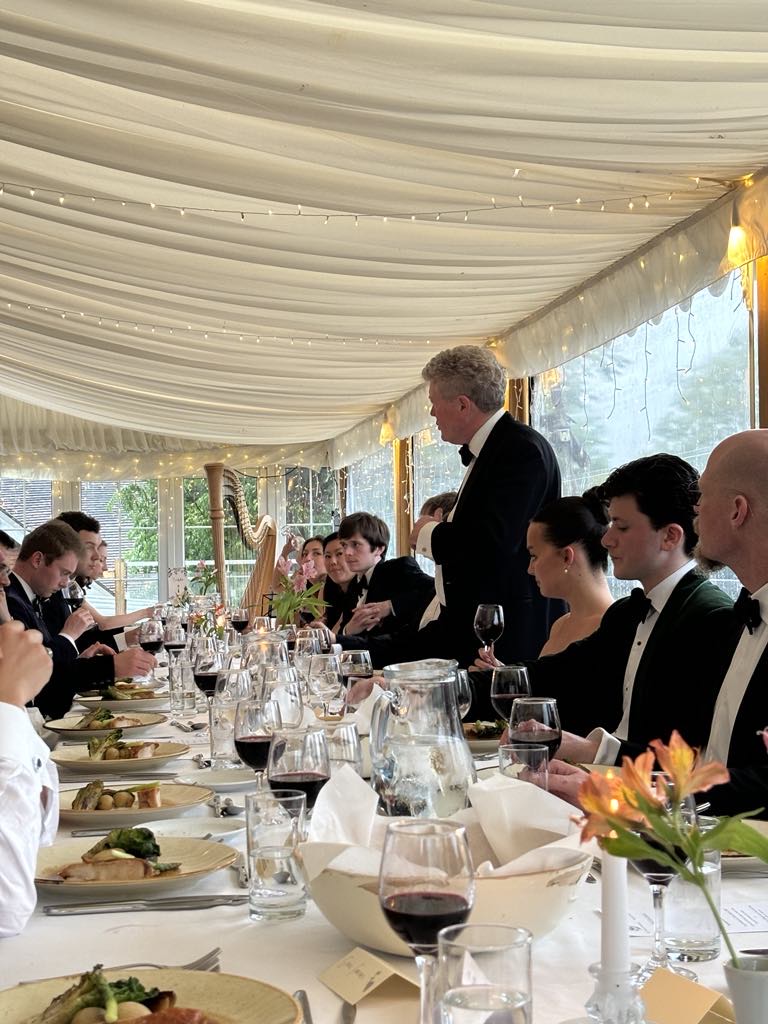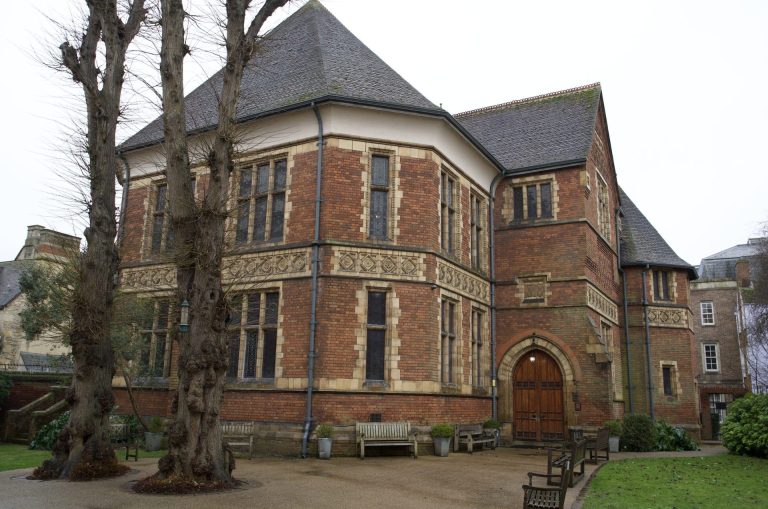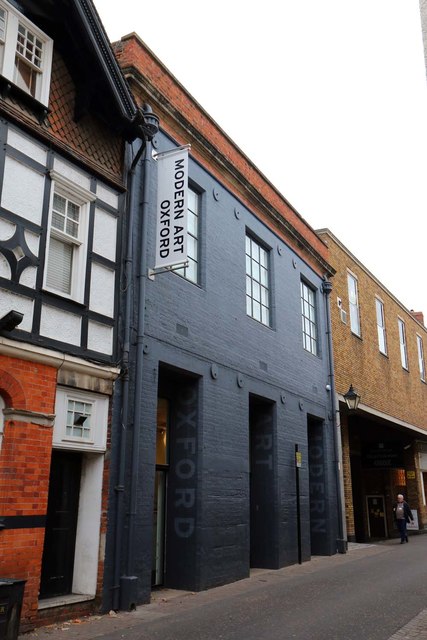The original title I had for this article was ‘Retired from Sad, New Business in Camp’. This was weeks before the actual concert itself, where my view was entirely informed by the series of videos posted on the instagram account, @mitskiontour. From the upbeat rendering of I Don’t Smoke, to the dead-bug poise Mitski holds in the second verse of I Bet On Losing Dogs, these excerpts seemed to promise a campy, joyous, pick-apart-and-put-back-together of the bastion songs of my teenage years.
Performed in the historic Eventim Apollo, the third day of The Land is Inhospitable and So Are We’s UK tour did not fulfill my expectations as a hedonistic, debaucherous upturning of everything that had come before. This is not to say that the concert was conventional or banal, by any means – it was undoubtedly one of my favourite concerts I’ve been to recently. It’s just that I had expected the concert to be far more wild and irreverent, a complete disavowal of the resentment, sadness and anger of past albums in a total stylistic turnaround. Instead, I was pleasantly surprised by the deliberate reimagination of Mitski’s past works, and the artful negotiation of the troubles of her career that came with it.
There were indeed joyful subversions of the genre, such as the soaring live fiddle that played over the acoustics of Pink in the Night and the slightly jazzy twist to Valentine, Texas replete with tasteful dings of the triangle. Still, these were counterbalanced with the classics preserved in their original form: I Bet on Losing Dogs, First Love/Late Spring, Last Words of a Shooting Star, and Washing Machine Heart, among other well-known pieces, remained true to their album versions.
Especially given the rampant TikTok proliferation and occasional misinterpretation (and yes, I am an avid supporter of gatekeeping Mitski songs when lyrics are taken and divorced from the broader context of the song) of her works, I found that Mitski’s mix of preservation and reinvention appropriately honoured her fanbase, especially newcomers without an in-depth attachment to the full extent of her discography, while still granting ample room for artistic experimentation.
Such a balance is particularly commendable given Mitski’s own relationship with music and performance. In a 2021 interview with Rolling Stone’s Angie Martoccio, Mitski admitted that, at the point of her last performance for the Be the Cowboy tour in 2018, she was thinking of it as the last show she would ever perform, before quitting and finding another life. She spoke of the objectification fame brought: “The music industry is this supersaturated version of consumerism. You are the product being consumed, bought, and sold.”
In the contemporary world of concerts, it seems that most artists exist at the extremes in terms of how they respond to this commodification: either they provide a range of personable divulgences about their lives and histories, engineering a familiarity with their audience to feed into the parasociality of relationships, or they maintain a stoic indifference towards adoring fans (thinking specifically of one British band which makes it notoriously difficult for any concert-goers to sing along with them).
I’m not going so far as to say Mitski has resolved this tension entirely. Without a doubt, it remains difficult for those of us who resonate with her crafted lyricism and plaintive melodies to not feel, or at least yearn for, some sort of deeper connection with her as a person.
Mitski doesn’t abuse this dynamic. She preserves a professional distance. During the concert, there were three segments in which she spoke directly to the audience, and in none was she distinctly confessional. In the second break, introducing her band members, Mitski spoke more of the artists around her than of herself, sharing the spotlight in an important way.
Still, her appreciation for her listeners is undeniable. “All of us,” she says, after introducing the band members, “with all of our lives, are very happy to be here, doing this for you.” At the very end of her concert, she gives a tender farewell to the audience: “I know you won’t believe me when I say this, but I love you – I love you very much.”
This struggle between self-preservation and exposure, between pressure, connection, and integrity is exemplified in the physical arrangement of the performances itself. After the opener, the audience is tantalised by a red curtain draped around an elevated circular platform, which forms a smaller stage on the large set of the hall. Although Mitski enters from stage left, she remains on this central podium thereafter.
Over the course of the concert, various things arrive and are taken from the platform: chairs are carted off, strobe lights rotate merrily around the borders, mirror shards distend and recede into the ceiling, with the artist farewelling each prop and ornament in its own way. Despite the permeability of this threshold, the artist herself never leaves – she remains there, in a black A-line skirt, marionette-like choreography complementing her songs.
At times, it feels that the physical performance space makes literal the artist’s entrapment within her role: constrained by the expectations of her audience in performance, as one might feel in love (particularly if one relates to her repertoire), Mitski rebuffs and attempts to escape from these barriers. In Geyser, the artist runs to and is violently pushed back from the borders of the platform by some invisible force. The lyrics paired with this dance transfer across both the domains of romantic and artistic relationships: “I will be the one you need / The way I can’t be without you / I will be the one you need / I just can’t be without you” is a promise and a plea to a lover, but also to fans.
However, these boundaries in the concert are very much self-imposed. They maintain a purposeful distancing between the performer and the watchers, and demonstrate a close control over the artistic experience of the audience. Everything in the concert is well-chosen and deeply intentional, with each step and pulse finely tuned and timed to the beating of background drums, or the arrival of each new song.
Only at the very end does Mitski leap off the platform, breaking free from these restraints to offer something of herself: to give her final bows and bid us all goodbye.
This tour shows the audience a performer dedicated to her art, paying them their due while preserving a sense of independence and separation. It reclaims interpretation of many of her most noted works – where they might have been made trite by overuse, she reinjects resentment, grief and vitality. Still, it demonstrates a deep affinity for the lives and connections of concert-goers to her songs. While I did tear up on multiple occasions, exiting the Eventim did not leave me feeling as empty as concerts tend to do: not pushed to violent extremes of emotions, I felt deeply grounded in my own body and experiences throughout her performance.
It’s a challenging effect to have in the often consumerist, sensationalised world of music that we live in nowadays. In the end, the brilliance of The Land is Inhospitable tour is that it is an endeavour borne out of sincere love and respect for the audience, the art, and the performer, Mitski herself.











